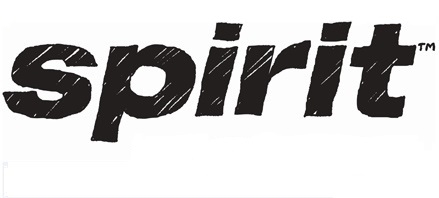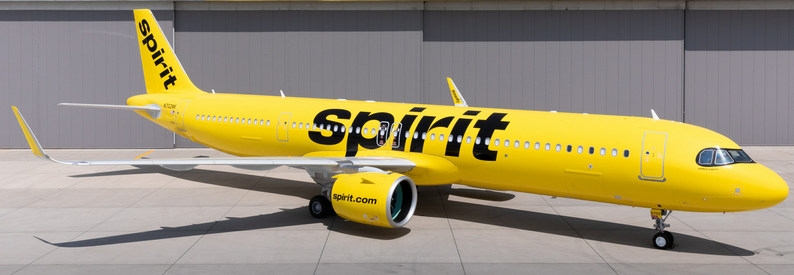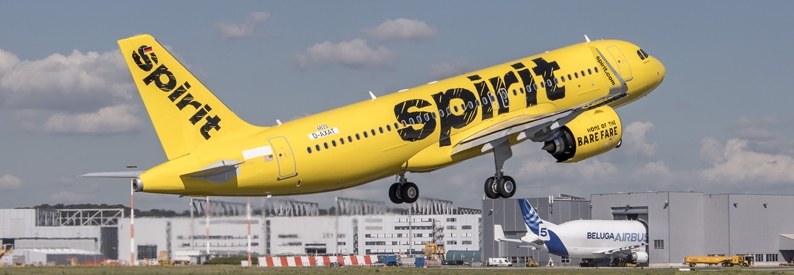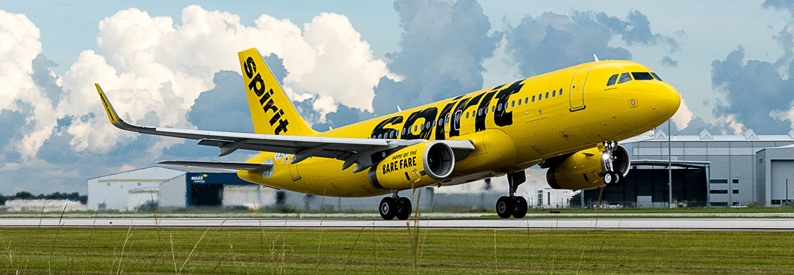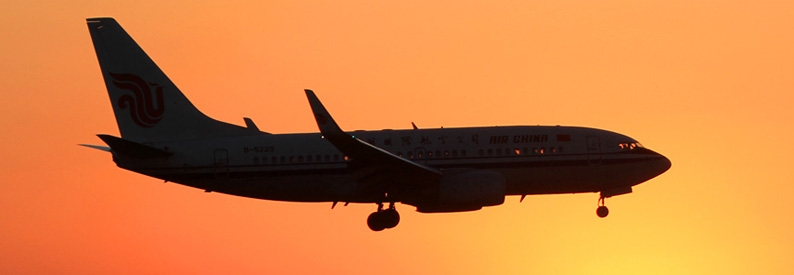A group of 25 passengers and travel agents have launched an antitrust lawsuit trying to stop the shareholder-approved USD3.8 billion merger between JetBlue Airways and Spirit Airlines currently also still being scrutinised by US federal antitrust regulators.
The merger was approved by Spirit shareholders in October 2022 following a protracted bidding war between JetBlue and Frontier Airlines. When the latter refused to sweeten its offer, Spirit terminated a similar merger agreement with the Colorado-based ultra-low-cost carrier and opted to go with JetBlue.
Spirit and JetBlue expect to conclude the regulatory process and close the deal no later than the first half of 2024. Once merged, the airlines will have a combined annual revenue of USD11.9 billion, making them the US's fifth-largest airline by revenue, with a national market share of 10.2%.
And this is precisely what is driving the private antitrust lawsuit against both airlines (Case No: 3:22-cv-6841) being brought in the San Francisco division of the US District Court, Northern District of California. The plaintiffs are seeking a jury trial and a court order prohibiting the merger, claiming it a violation of Section 7 of the Clayton Antitrust Act, a 109-year-old piece of legislation that seeks to prevent anticompetitive practices in their incipiency.
According to the charge sheet seen by ch-aviation, the proposed merger is labelled as "foreboding", threatening "loss or damage" to the plaintiffs and the public at large as JetBlue would gobble up Spirit, which currently acts as a market disruptor and price-cutting rival to JetBlue, the four US mainline legacy carriers, and other budget airlines. The result, the plaintiffs argue, would be to substantially lessen competition or create a monopoly in the US airline industry at a time when "the current trend towards concentration, lessening of competition, and the tendency to create a monopoly in the airline industry is unmatched and unparalleled".
They argue that JetBlue would gain a majority market share on more than a dozen routes where neither it nor Spirit previously dominated. Spirit would stop price-cutting, they claim, predicting that JetBlue would reduce capacity and increase fares, claiming it wants to buy Spirit to eliminate competition. They warn that low-cost-carrier capacity in the US would be reduced by 50% if the merger goes ahead.
The plaintiffs further allege that JetBlue offered USD400 million in hush money to quieten Spirit shareholders who allegedly knew that the acquisition would not pass regulatory muster.
Neither airline needed the merger, the plaintiffs charge, as Spirit already is the 7th largest airline in the US with a 4.9% national market share of airline seats, while JetBlue is the 6th largest and commands 5.3% of the national market. "Neither airline is a failing company. Both are strong and viable competitors, so there is no competitive need for the merger," they argue.
Amongst other things, the plaintiffs have asked the court to permanently enjoin JetBlue from consummating the acquisition of Spirit; declare void any agreement to pay Spirit shareholders the USD400 million sweetener; declare the merger contract null and void and against the competition supporting policies of the US; and to permanently ban JetBlue from continuing its participation in the Northeast Alliance - a US Department of Transportation authorised alliance between American Airlines and JetBlue to challenge United Airlines and Delta Air Lines' dominance in the US Northeast through codesharing, slot swaps, better schedules, and expanded frequent flier programme benefits.
The plaintiffs claim that, since 2007, the big four mainline carriers have been shrinking their services while inflating their fares, whereas Spirit was expanding, having achieved annual operating revenues of USD3.2 billion in 2021. "The continued vigorous competition of Spirit is one of the few, if not the principal, remaining competitive forces in the market. Its continued existence in the market is needed to preserve and protect the minimal amount of competition that exists in the airline industry today," they said.
Both airlines were not immediately available for comment.
- Type
- Base
- Aircraft
- Destinations
- Routes
- Daily Flights
